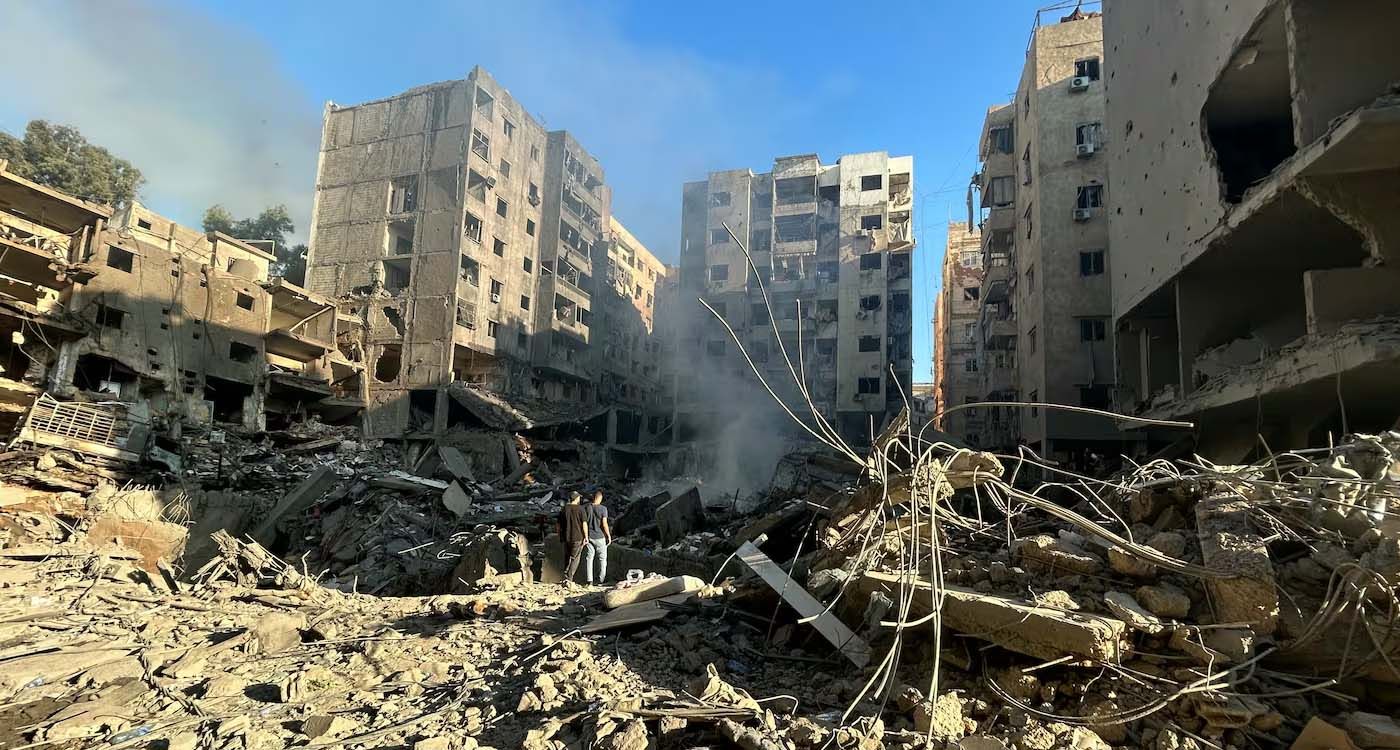- Home
- Highlights
- Nasrallah’s Assassination: Raoucheh Instead of Jerusalem

©ANWAR AMRO/AFP via Getty Images
No one could have imagined it for a single moment. At the time, it never occurred to anyone that an operation of such magnitude was possible or even conceivable. The massive resources mobilized for the assassination of Hassan Nasrallah, exactly one year ago to the day, sent shockwaves not only through the ranks of the pro-Iranian party but also across political and popular circles far beyond Lebanon’s borders.
Without question, this assassination represents the heaviest blow dealt to the Shia movement since its creation in the early 1980s, under the impetus of Iran’s Islamic Revolutionary Guard Corps, which had deeply entrenched itself in the Beqaa for that purpose.
Hassan Nasrallah undoubtedly possessed extraordinary charisma. He managed to embody the role of catalyst for a vast partisan mobilization and for the crystallization of an obstructionist current that at times even reached certain factions in this part of the world. Therefore, it is no surprise that Israeli Prime Minister Benjamin Netanyahu recently declared that Nasrallah’s assassination had practically broken the Iranian axis in the Middle East and brought about the fall of the Assad regime.
This first commemoration of the Hezbollah leader’s death should prompt serious critical reflection on the party’s political course. In this regard, it is instructive to revisit an interview given a few days ago to an Arab-language daily by former MP Elias Atallah. The latter was a wartime pillar of the Communist Party and, alongside late George Hawi, one of the founders of the secular “national resistance” set up after Israel’s 1982 invasion. Based on experience and stressing the importance of self-criticism, Atallah emphasized that “resistance is a means, not an end in itself,” and certainly not a “trademark” or a “permanent identity.” He drew a clear line between “a resistance that liberates and then withdraws” (in favor of the state) and “a resistance that turns bearing arms into a profession and holds the country hostage.”
In a sense, Hassan Nasrallah paid with his life for his party’s failure to respect these clear‑sighted principles advanced by Elias Atallah. After Israel’s full withdrawal from Lebanon in 2000, the “resistance” that Hezbollah insisted on embodying exclusively should have stepped aside and yielded to the state, paving the way for development, reconciliation and internal stability. Instead, the party subordinated to the Pasdaran and chose a radically different path. It provoked Israel’s return to the South twice, in 2006 and again in 2023. More importantly, it transformed what it called “resistance” into nothing more than an instrument for internal power-grabbing and for strengthening Iran’s hegemonic regional expansionism.
In his memoirs, late Imam Mohammed Mehdi Chamseddine urged Shias to “have no project of their own but to struggle while integrating fully into the society in which they live.” Rather than following his advice, Hezbollah chose to play in the big leagues by aligning itself with the mullahs’ regime in Tehran (wilayat al-faqih and all that…). But whoever seeks to play there without actually having the means inevitably draws large-scale retaliation, precisely like the operation of September 27, 2024.
The surreal resources deployed to assassinate Nasrallah, together with the string of highly strategic setbacks suffered by the pro-Iranian party in 2023 and 2024, are but the direct consequence of what can only be described as a lack of geopolitical foresight. How else to define such blindness but by the reliance on ideology, fiery rhetoric and empty slogans to confront an adversary whose overwhelming technological, military, economic, intelligence and AI supremacy can no longer even be measured?
Such blindness could only culminate in the November 27, 2024, attack and in the total setback Hezbollah has endured in recent months. And, unable to realize on the ground the leitmotif “on the road to Jerusalem,” launched in October 2023, Hezbollah today is reduced to harboring the supreme ambition of achieving the great “feat” of projecting images onto the Raoucheh rock. This act is accompanied by the gratifying bonus of a marked blow to the authority of the Prime Minister and the government, with the obvious aim of further perfecting the deconstruction of the central state.
Read more




Comments